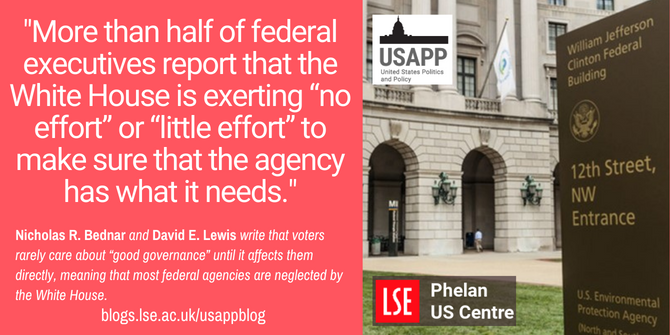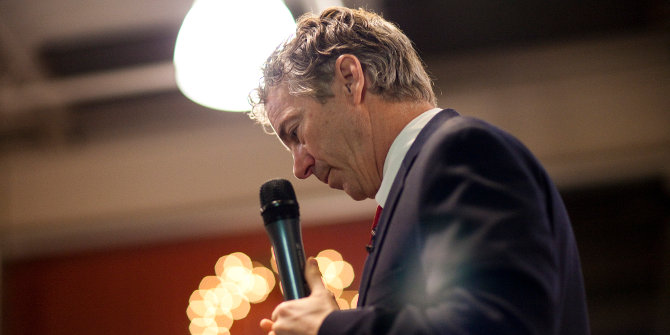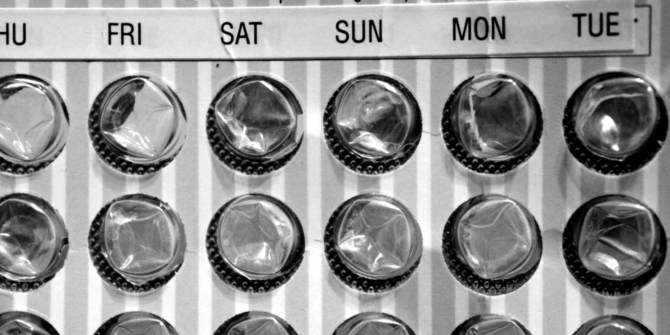
 While presidents are elected to oversee the executive branch, the day-to-day services government provides to Americans are implemented by hundreds of federal agencies. In new research, Nicholas R. Bednar and David E. Lewis looked at which agencies presidents’ favor and why. Using a survey of federal executives, they find that presidents spend more time and attention on the agencies which they see as being most important to furthering their policy agendas, and by extension, increasing their chances of re-election. They also find that presidents hesitate before investing in agencies, such as independent commissions, they cannot easily control. These trends have important consequences for the capacity and effectiveness of the administrative state.
While presidents are elected to oversee the executive branch, the day-to-day services government provides to Americans are implemented by hundreds of federal agencies. In new research, Nicholas R. Bednar and David E. Lewis looked at which agencies presidents’ favor and why. Using a survey of federal executives, they find that presidents spend more time and attention on the agencies which they see as being most important to furthering their policy agendas, and by extension, increasing their chances of re-election. They also find that presidents hesitate before investing in agencies, such as independent commissions, they cannot easily control. These trends have important consequences for the capacity and effectiveness of the administrative state.
The US Constitution entrusts the management of the executive branch to the president. Proper management of the administrative state affects presidents’ legacies and chances of reelection. Agencies need sufficient capacity to put forward and implement policies related to presidents’ policy agendas. Likewise, presidents want to avoid the blame that results when government failures cause physical and economic harm to voters. In the words of Stanford University political scientist Terry Moe, “All presidents are acutely aware of this, and they respond by trying to build and deploy an institutional capacity for effective governance.”
Scholars overstate the degree to which presidents invest time and energy into building bureaucratic capacity. Voters rarely know or care about the policies implemented by obscure agencies like the Marine Mammal Commission or the Agricultural Marketing Service. Rather than spend time managing these agencies, presidents advance their personal goals through policymaking or campaigning. Yet sometimes presidents do invest time in particular agencies. Understanding why governments fail requires a broader understanding of the incentives that shape the willingness of presidents to invest time and energy into managing administrative agencies.
What Do Voters (and Presidents) Want?
Voters have only the vaguest sense of what government agencies do. They struggle to connect how the Internal Revenue Service’s antique computer systems or workforce attrition within the Bureau of Land Management affect the policies and programs they care about. Although voters may punish presidents for government failures, they do not reward presidents for investing time and energy into preventing them. Instead, voters reward presidents and their parties for enacting new and exciting policies that align with their preferences.
With only four years before the next election, presidents prioritize enacting policy through administrative processes. Agencies have an easier time putting forward and implementing policies when they have sufficient capacity. But investments in agency capacity and management matter for future performance. The White House must identify capable leaders, advocate for additional appropriations, and reorganize agency procedures to promote efficiency. Presidents may not realize returns on these investments until late in their term. As a result, presidents obtain greater marginal benefits from investing time and effort into policymaking over management.
When presidents do invest in agency management, they focus their attentions on agencies central to ensuring their reelection and those in their own party. Presidents seek to build capacity in agencies that implement policies central to their agendas and campaign promises. At the same time, they seek to shore up capacity in agencies where government failure poses a risk to the public.
Presidents Take Longer to Nominate Individuals to Key Management Positions
A central way that presidents invest in agency management is by nominating individuals to vacant leadership positions. At the start of their term, presidents must fill over 1,000 vacancies. Many of these positions, such as the agency’s Chief Financial Officer, play a significant role in agency management. Other positions, however, play a key role in implementing presidents’ policy agendas. Examining which positions and agencies receive quicker nominations provides insights into presidential incentives and behavior.
Presidents and their staff must spend significant time vetting potential nominees and assigning them to the right position in the right agency. Given the time it takes to undergo the nomination process, presidents must prioritize some positions over others. The average position remains vacant for over a year and a half following inauguration day. An increasing percentage of positions remain vacant during the entirety of the president’s first term. President George W. Bush nominated persons to 87 percent of vacant positions during his first term. By contrast, President Trump nominated persons to only 74 percent of vacant positions.
Presidents prioritize nominating leaders to policy positions over other positions. Presidents are 59 percent more likely to nominate individuals to key policy positions. These positions play an integral role in ensuring that the agency’s priorities align with the president’s agenda. By contrast, presidents are 35 percent less likely to nominate individuals to key management positions than all other positions. These trends reflect a general apathy toward management relative to policymaking.

Office of the Administrator – Agency Headquarters Renaming Ceremony – Credit: The U.S. National Archives
Vacancies contribute to poor performance. Without sufficient and skilled leadership, agencies lack direction and coordination. For example, the Drug Enforcement Agency (DEA) lacked a Senate-confirmed leader for over five years from 2015 to 2021. During this period, the DEA received significant criticism for its handling of the opioid crisis. If presidents lack incentives to nominate individuals to key positions, then agency performance may continue to decline as the rate of vacancies increases.
Federal Executives Report Little White House Investment
Focusing on a single mode of investment may obscure broader, more opaque trends of where a president gives their attention. An alternative means of measuring investment is to ask those most likely to observe it: federal employees. In a 2020 survey, we asked federal executives: “How much effort [does the White House] spend to ensure that [your self-identified agency] has what it needs to carry out its mission?”
We found significant variation in the reported level of investment. More than half of federal executives report that the White House is exerting “no effort” or “little effort” to make sure that the agency has what it needs. Another 21 percent of respondents report that the White House invests “a good bit” or “great deal” in the agency. Characteristics of the individual respondents explain some of the difference. The survey captures perceptions of investment by the Trump Administration and, accordingly, Republicans and presidential appointees express higher levels of investment than Democrats and non-appointees.
Even controlling for these characteristics, however, the president still favors agencies that they perceive as instrumental to their policy agendas. Respondents report higher levels of investment if they work in conservative agencies that implement policies prioritized by the Trump Administration. Indeed, President Trump sought to build up agencies like Immigration and Customs Enforcement and Customs and Border Protection to improve border security. Meanwhile, President Trump sought to frustrate the performance of agencies perceived to be ‘liberal’, like the Environmental Protection Agency.
Presidents also hesitate before building capacity in agencies they cannot easily control. Respondents in the Executive Office of the President—the nucleus of all White House policymaking efforts—report high levels of investment. By contrast, respondents in independent commissions report low levels of investment. Indeed, President Trump proposed abolishing a number of these agencies, including the Consumer Financial Protection Bureau and the Chemical Safety and Hazard Investigation Board.
The Health of the Administrative State
Neglect—not investment—is the dominant strategy of presidential management. Voters do not care about “good governance” until it affects their policy interests or their pocketbooks. As a result, most agencies receive little prospective attention from the White House.
The lack of presidential investment has consequences for the health of the administrative state. Agencies cannot acquire leaders, resources, and personnel on their own. Bureaucratic capacity decays absent occasional investment. We can see the consequences of this decay whenever the Federal Emergency Management Agency bungles its response to a hurricane, or the Veteran Health Administration fails to provide care for a sick veteran. If the head of the executive branch does not build capacity to prevent these policy failures, then it remains unclear whether any elected official has sufficient incentives and power to invest in the administrative state.
- This article is based on the paper, “Presidential Investment in the Administrative State”, in American Political Science Review.
- Please read our comments policy before commenting.
- Note: This article gives the views of the author, and not the position of USAPP – American Politics and Policy, nor the London School of Economics.
- Shortened URL for this post: https://bit.ly/43YaioI






